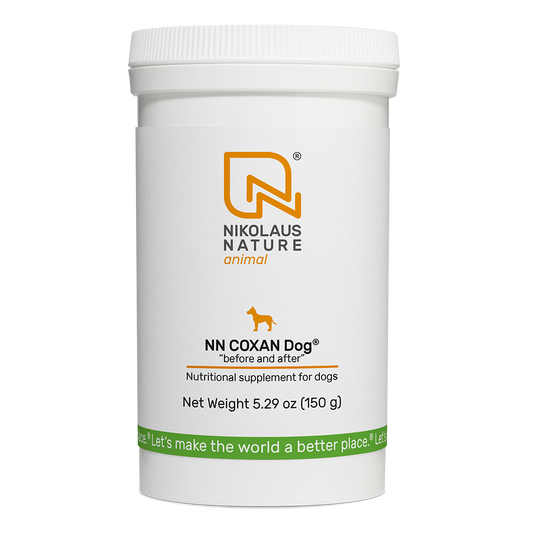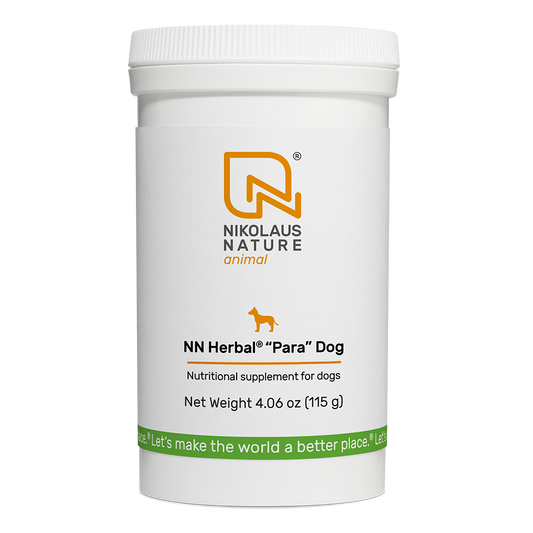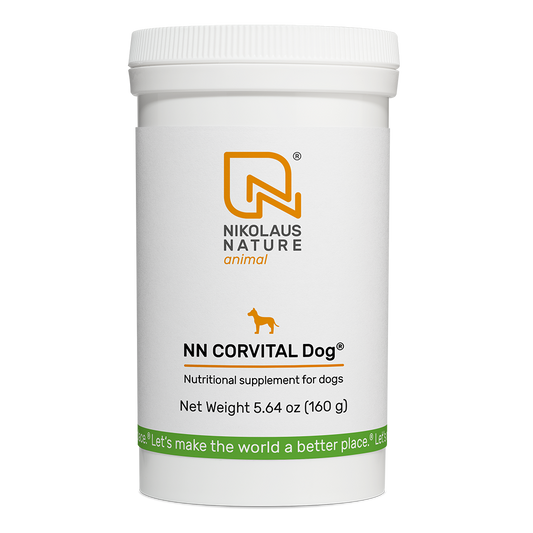Do Dogs Need Multivitamins? Understanding When and Why to Use Them?
As a pet owner, you want the best for your dog, and that includes keeping them healthy. According to a survey, 10-33% of dogs in the U.S. are given dietary supplements. But do dogs really need multivitamins, or can they get everything from their regular diet?
Multivitamins can be helpful, especially for dogs with specific health needs, such as older dogs needing joint support, active dogs requiring recovery support, or dogs with poor diets needing nutritional balance. It's essential to understand when and why your dog might benefit from multivitamins.
So, keep reading to ensure you're making the right decision for your dog's health!

What Are Multivitamins for Dogs?
First things first, let's talk about what multivitamins for dogs actually are. Multivitamins are supplements that aim to fill nutritional gaps in a dog's diet to stay healthy. These dog health supplements often include essential vitamins like A, B-complex (B1, B6, B12), C, D, and E, as well as minerals like calcium, zinc, magnesium, and potassium.
- Vitamin A helps with vision and keeps the skin healthy.
- B vitamins support gut health, energy, and metabolism.
- Vitamin E is an antioxidant that support the immune system.
Some multivitamins have extra ingredients like omega fatty acids, probiotics, and antioxidants.
Multivitamins come in different forms like tablets, chews, powders, and liquids, so you can pick what works best for your dog.
Do Dogs Need Multivitamins and Supplements?
The decision to give your dog multivitamins depends on their age, health status, and diet. Not every dog needs supplements, but some do. Let's break it down further.
Senior Dogs Require Multivitamins and Supplements
Have you noticed your older dog slowing down? As dogs grow older, their bodies become less efficient at absorbing nutrients from food, and it can lead to deficiencies despite a well-balanced diet.
Multivitamins specifically formulated for senior dogs mainly include vitamins C and E, powerful antioxidants supporting immune and cognitive health. And B vitamins are important in energy production and nervous system functions in older dogs.
Joint health is also a major concern for senior dogs. Joint supplements like NN COXAN contain omega-3 fatty acids, glucosamine, chondroitin, and B vitamins. These ingredients help reduce inflammation and support joint flexibility. These supplements improve the quality of life of your senior dogs and help them remain active and healthy as they age.
Dogs with Dietary Deficiencies
Not all dogs get the perfect balance of nutrients from their meals. If you notice your dog is not getting a balanced diet—maybe they’re picky eaters, or you’re feeding them a homemade diet.
For example, if a dog is on a grain-free diet lacking specific B vitamins in whole grains, a multivitamin can provide those missing nutrients.
Dogs Recovering from Illnesses Need Multivitamins and Supplements
When a dog is sick, their body uses up a lot of nutrients to fight off infections and repair itself. It can lead to deficiencies if they aren't eating well. This is especially true for dogs undergoing treatments like chemotherapy or surgery.
Adding a multivitamin to their diet can boost their immune system and help in recovery.
Look for multivitamins that contain vital vitamins like C and E, which act as antioxidants and help combat oxidative stress during recovery. B vitamins are also important because they aid in energy metabolism and nerve function, and omega-3 fatty acids can help reduce inflammation and promote healing
When Should I Use Multivitamins for My Dog?
While most high-quality commercial dog foods provide all the nutrients they need, there are times when extra vitamins can help. For example, dogs with digestive issues or metabolic disorders might not absorb nutrients well, even if they eat a balanced diet. In these cases, you should use multivitamins.:
The other times when dogs need more vitamins are stressful periods like pregnancy, nursing, or heavy exercise. Very active dogs, like those in agility training, may need extra nutrients to recover from physical activity and to keep their energy levels up.
Pregnant and nursing dogs also need more vitamins because they are supporting both their own bodies and their puppies.
If you notice that your dog has a dull coat, low energy, or is getting sick often, they might not be getting enough vitamins from their food. Multivitamins can help boost the immune system, reduce inflammation, and speed up healing for dogs recovering from surgery or illness.
In short, not all dogs need multivitamins, but they can be beneficial at certain times in your dog’s life when they have specific health conditions.

How to Use Multivitamins for Dogs?
When giving your dog multivitamins, it’s important to understand their particular nutritional needs. Here's how to use multivitamins for dogs:
Choosing the Right Supplements for Your Dog’s Health
Make sure to pick high-quality multivitamins made specifically for dogs. Human supplements aren't suitable for pets, as the dosage and ingredients can differ. Human supplements may contain additives that are toxic to dogs, such as xylitol, and can lead to serious health issues.
Check the label for natural ingredients derived from sources like grass-fed meat, fish oil, and plant foods, and avoid products with artificial fillers or allergens.
Additionally, look for supplements with age-specific formulations; this ensures that the nutritional balance meets your dog's life-stage needs.
When choosing a supplement, absorbability must also be considered. It's important to select products that explain how active ingredients are absorbed. For example, Nikolaus Nature uses clinically proven technologies that increase nutrient absorption of supplements in the dog bodies.
Choose brands that have undergone rigorous testing for quality and safety. Certifications from recognized food safety organizations like the FDA or adherence to food safety protocols, such as HACCP, can be good indicators of product reliability.
If your dog is very active or has a unique diet, they may need more vitamins compared to a dog with a relaxed lifestyle. Pay attention to their activity level and any health issues they might have to find a product that suits their needs.
How to Determine the Correct Dosage of Supplements and Multivitamins
Once you have the right multivitamin, it's crucial to determine the correct dosage. Generally, the dosage usually depends on your dog’s weight and age. For most adult dogs, a standard recommendation is to administer one tablet or capsule daily, but this can vary based on the product's formulation.
It's essential to check your multivitamin label, as different brands may have different concentrations of vitamins and minerals.
For puppies and younger dogs, dosages are typically lower. It can range from a few milliliters of liquid supplements to half a tablet. Always start with the lowest recommended dose and monitor your dog for any side effects.
If your dog has specific health issues or dietary restrictions, you must adjust the dose accordingly. Remember that multivitamins should not replace a balanced diet.
Incorporating Multivitamins into Your Dog’s Daily Routine
Now that you have the right multivitamin and dosage, the next step is to make it part of your dog's daily routine.
A simple way to do this is by adding the supplement to their meals. If you're using powdered multivitamins, you can easily mix them into their food or opt for chewable tablets that your dog may enjoy as a treat. This makes it easy to ensure they're getting the nutrients they need while also making the meal more enjoyable for them.
Consistency is vital, so try to give the multivitamin at the same time each day, like during breakfast or dinner. Having a set routine helps you remember to provide the supplement regularly, making it part of your dog’s daily care.
Consulting a Veterinarian Before Starting Multivitamins
Your veterinarian can help identify the best supplements based on your dog’s health. This is especially important because some fat-soluble vitamins, like vitamin D, can be harmful if given in large amounts. It cannot excreted rapidly and builds up in the tissues, causing kidney failure and death if not properly managed.
Plus, a veterinarian can help detect the potential interactions between supplements and any medications your dog may be taking. Your veterinarian is a key partner in your dog’s well-being, so don't hesitate to ask for their advice before introducing new supplements.
Liquid Vitamins for Dogs vs. Tablets: Which Is Better?
When deciding between liquid vitamins or tablets for your dog, it's important to weigh the pros and cons of each option
Liquid vitamins are known for their fast and effective absorption. Because they are easier to digest, they can be an excellent option for dogs with digestive problems or those with trouble swallowing pills. Administering liquid vitamins is also simple—you can mix them into your dog’s food or use a dropper to give them directly, making the process less stressful.
Tablets, on the other hand, are convenient in their own way. Many dogs enjoy flavored or chewable tablets and tend to have a longer shelf life than liquids. Plus, they are easy to store and handle.
Ultimately, the best choice between liquid vitamins and tablets depends on your dog’s specific health requirements and your convenience. Some dogs may prefer one over the other, so it's worth experimenting to see what works best.
Conclusion
Multivitamins can be a valuable addition to your dog's health routine, particularly in specific situations. Whether you're caring for a senior dog, addressing dietary deficiencies, or supporting your pup's recovery, multivitamins improve their overall well-being.
The most important part of successful supplementation is consulting with your veterinarian. They can provide guidance on the best choices for your dog's needs and ensure they get the right vitamins and minerals.
By understanding when and why to use multivitamins, you're taking significant steps toward a healthier, happier life for your dog. Don’t hesitate to seek professional advice and explore the best options for your dog's unique health needs.
FAQs
Can I give my dog human multivitamins?
No, you should not give your dog human multivitamins, as they often contain high dosages and ingredients that are not safe for dogs, such as xylitol, iron, certain herbs, or fat-soluble vitamins (like A and D) that can be toxic in excess. Always choose multivitamins specifically formulated for dogs.
What vitamins are most important for senior dogs?
Senior dogs often benefit from supplements like glucosamine for joint health, antioxidants such as vitamin E for cognitive function, and omega-3 fatty acids for overall wellness. These multivitamins can help address age-related changes and support your dog's vitality.
How often should I give my dog multivitamins?
You can usually provide your dog with multivitamins daily, but it depends on the specific product and your dog's needs. Most dog vitamins are made for daily use. Always follow the recommended guidelines provided on the product label. If you forget a dose, don’t give extra—just wait until the next scheduled time, as too much can be harmful.
Are there any side effects of providing dogs multivitamins?
While multivitamins are generally safe when used as directed, over-supplementation can lead to adverse effects. These may include digestive upset, allergic reactions, or interactions with other medications.
Are joint supplements for dogs beneficial?
Yes, joint supplements can be highly beneficial, especially for senior dogs or those with arthritis. They often contain glucosamine, chondroitin, and omega-3 fatty acids, which help support joint health and improve mobility. A great option to consider is the NN COXAN Dog - Joint Supplement, specially formulated to reduce inflammation and promote joint flexibility.
Sources:
- Veterinary Pet Supplements and Nutraceuticals, https://pmc.ncbi.nlm.nih.gov/articles/PMC7802882/
- Xylitol toxicity in dogs,https://pubmed.ncbi.nlm.nih.gov/20473849/
- Food and Drug Administration,https://www.fda.gov/
- Hazard Analysis Critical Control Point (HACCP),https://www.fda.gov/food/guidance-regulation-food-and-dietary-supplements/hazard-analysis-critical-control-point-haccp
- Vitamin D Toxicity in Dogs,https://www.fda.gov/animal-veterinary/animal-health-literacy/vitamin-d-toxicity-dogs







